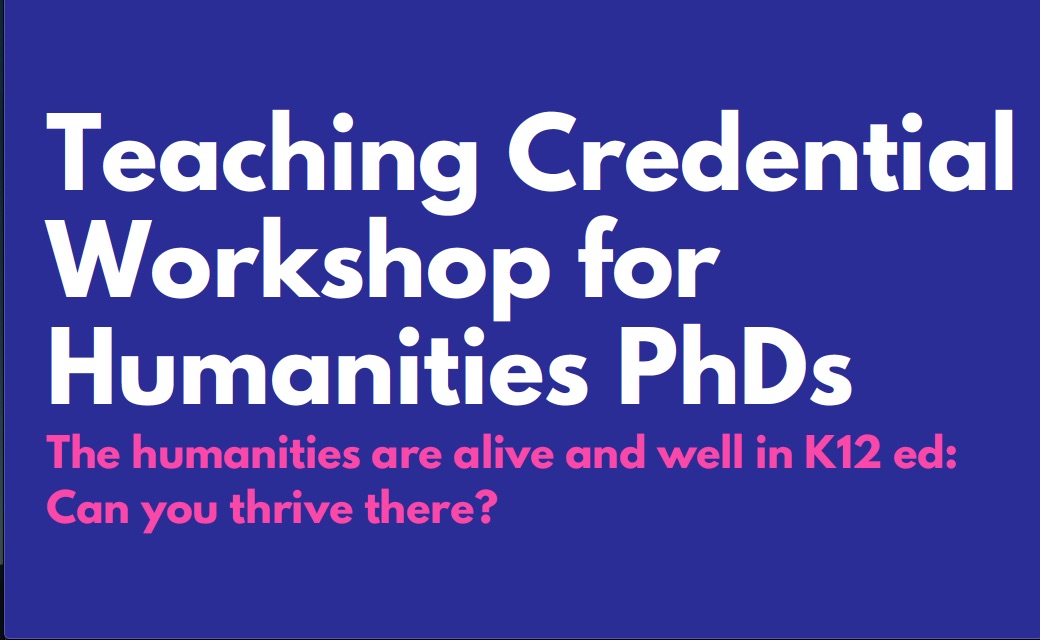On May 7, 2020, Professor Kip Téllez (Education, UC Santa Cruz), a lifetime educator with early career experience teaching in K-12 public schools in east Los Angeles County, led a teaching-credential workshop for Humanities PhDs organized around the prospect of teaching secondary school in the California public school system. This CRES-sponsored Zoom workshop represented the culmination of a series of discussions between CRES and members of the Education Department about how to strengthen the natural yet largely unactivated ties between the Humanities Division and Education, at both undergraduate and graduate levels. Yet this workshop also pointed to promising avenues ahead, including the possibility of Humanities PhDs simultaneously pursuing teaching credentials while completing their doctoral education.
Currently, even with degrees in hand, UC Santa Cruz Humanities PhDs often find themselves on the adjunct track, pushed into the precariat and unable to professionally translate their college teaching experience and pedagogical training into California public school teaching, despite the availability of jobs in that arena. Even prior to the current pandemic’s devastating impact on the academic job market (in terms of both tenure-track and adjunct positions), graduate students in the Humanities at UC Santa Cruz expressed great interest in public secondary school teaching. Indeed, during the 2018-19 academic year, Professor Téllez conducted a survey of Humanities graduate students, assessing their interest in high school teaching. A total of 37 students from across the division responded. Tellingly, over half agreed or strongly agreed with the statement, “I would consider teaching high school and forgo a search for a university/college position.” As Professor Téllez noted in the recent CRES-sponsored workshop on teaching secondary school, “Many high school districts in California offer salaries and benefits commensurate with (or better than) the compensation for beginning academics in the Humanities and Social Sciences.” These jobs, moreover, are bolstered by strong benefits and union representation.
To access Professor Téllez’s May 7, 2020 PowerPoint presentation, please click here.

